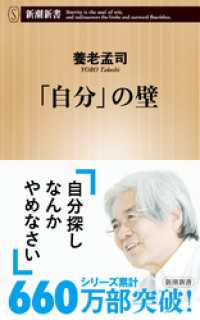- ホーム
- > 洋書
- > ドイツ書
- > Social Sciences, Jurisprudence & Economy
- > Social Sciences
- > social sciences in general
Full Description
This work is dedicated to map the modes of thinking and acting of legal professionals who work in white-collar crime. The study's qualitative findings show a professional cognitive pattern that is apolitical and technical, and criticizes unskilled people working in the state administration more than businesspeople.








